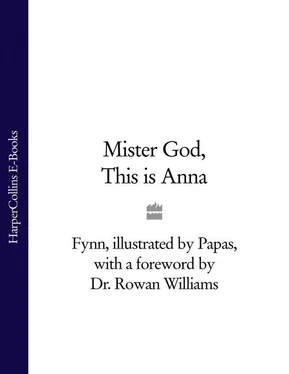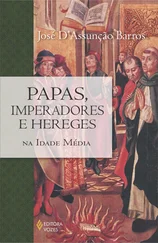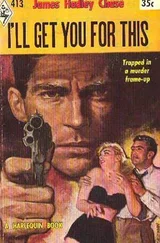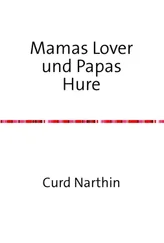The other credibility problems resolved themselves when I realized that Fynn lives on dialectic. It is not simply that he has a great appetite for dialogue with people. He gives the appearance of being in a kind of reciprocal tension with all phenomena all the time. He is a man of furious intellectual energy. It is as though his mind is processing data (and not only that of number) at every moment and perceiving and printing out new and significant patterns of relationships.
It was into this dialectical orbit that Anna fortuitously swam, and suddenly found her spirit lifted up to see the world with different eyes from other children and to refuse the blinkers which both school-ma’am and parson had readily to hand in their pre-packed word-parcels. If Fynn needed Anna, Anna also, and just as specifically, needed Fynn. And it stands to reason that the problems which they teased away at together were the problems which obsessed Fynn. And it also follows that the problems which have preoccupied him over the intervening years have naturally become contemporary. In other words this dialectical relationship shaped the Anna story. An analogy from the Christian story casts some light upon this problem.
The first three Gospels represent the words and deeds of Jesus which the early Church found useful and necessary for their domestic life of living, and teaching, and explaining. With the passage of time the continuous use made the form. So Fynn, continuously reflecting on and remembering and re-evaluating his life with Anna, within the context of his own intellectual growth, formed the Anna story and its meaning. Just as the Fourth Gospel is a theological work, where perhaps one pregnant sentence spoken by Jesus (like, ‘I am the bread of life’) is expounded by putting words into the mouth of Jesus, so, it seems to me, Fynn has taken an Idea of Anna, expressed in a lapidary way and, grasping its meaning, has worked out its significance so that the Ah! of it makes a dramatic impact on bears of very little brain like me.
Even so, some readers may remain incredulous. They will ask, ‘Is it true?’ Now I happen to believe that it is true in the way they are asking the question. But then I know Fynn. I have seen the documents in the case: the notes, the drawings, the essays, the music. But there is a sense in which the relics have nothing to do with the truth of this, any more than the truth of the myth of the Garden of Eden would be enhanced by the discovery of a fossilized apple with a couple of bites taken from it!
What is Truth? Pilate raised the question and wisely declined to answer it, realizing no doubt that all political truth is necessarily tainted. But Søren Kierkegaard did make an attempt at answering the same question; and many people have found it satisfying as a rough-and-ready measure for that kind of truth which cannot be measured on the laboratory bench. The truth, he wrote, is what ennobles. It is, in other words, that which makes you a better being. It is in that realm that the truth of Mister God, This is Anna is finally to be found. It is an ennobling tale which greatly widens our perception and touches the heart. And it does so in a way which defies the processes of logic. We cannot find words to explain how it works its spell. But, as Solzhenitsyn wrote in his Nobel prize speech, ‘Not everything has a name. Some things lead us into the realm beyond words … It is like that small mirror in the fairy tales – you glance in it and what you see is not yourself; for an instant you glimpse the Inaccessible, where no horse or magic carpet can take you. And the soul cries out for it.’
This book has the same kind of transporting magic. Fynn and Anna, with their mirror-book and all their other simple impedimenta, allow us to glimpse the Inaccessible. They would never have won a Nobel prize for literature. They do, however, make me congratulate myself on having joined the human race. Above all they put back the Ah! into that mixture of mess and marvel which makes the mystery of our mortal life.
Конец ознакомительного фрагмента.
Текст предоставлен ООО «ЛитРес».
Прочитайте эту книгу целиком, купив полную легальную версию на ЛитРес.
Безопасно оплатить книгу можно банковской картой Visa, MasterCard, Maestro, со счета мобильного телефона, с платежного терминала, в салоне МТС или Связной, через PayPal, WebMoney, Яндекс.Деньги, QIWI Кошелек, бонусными картами или другим удобным Вам способом.












